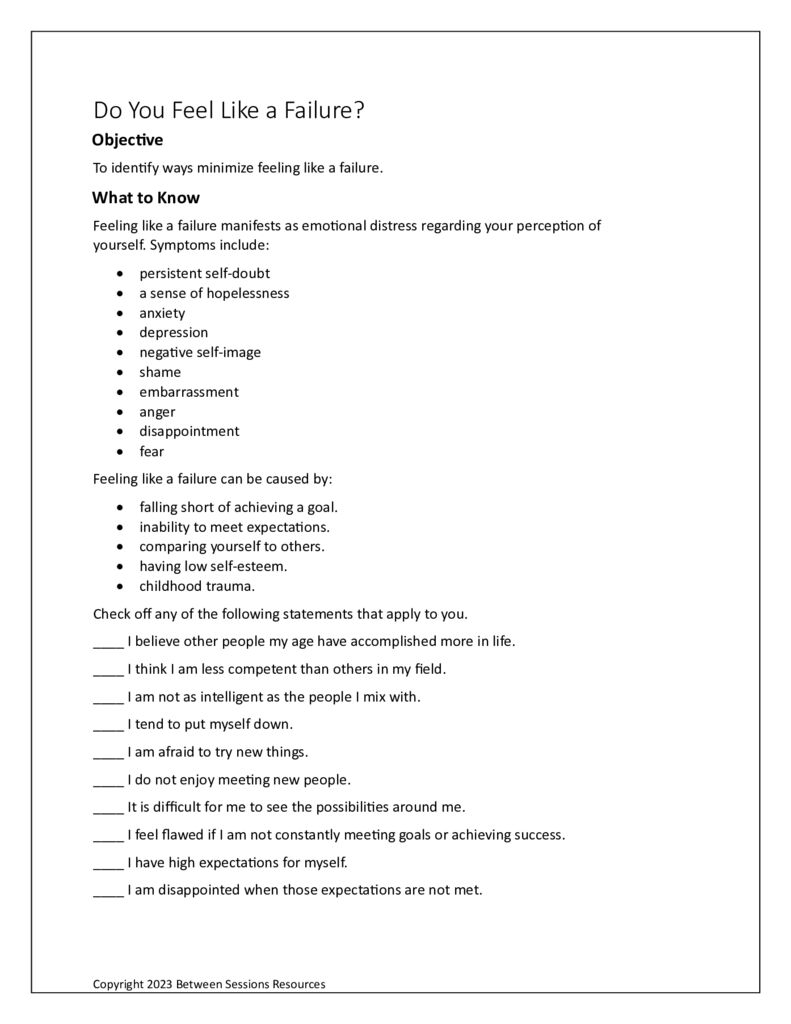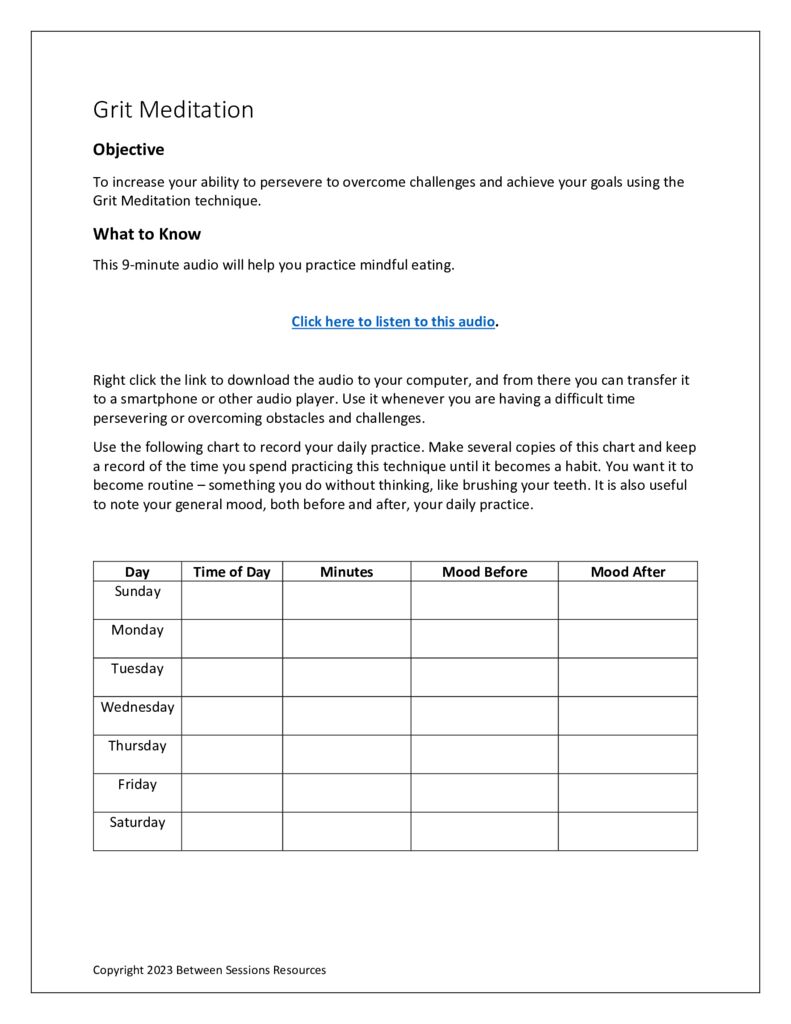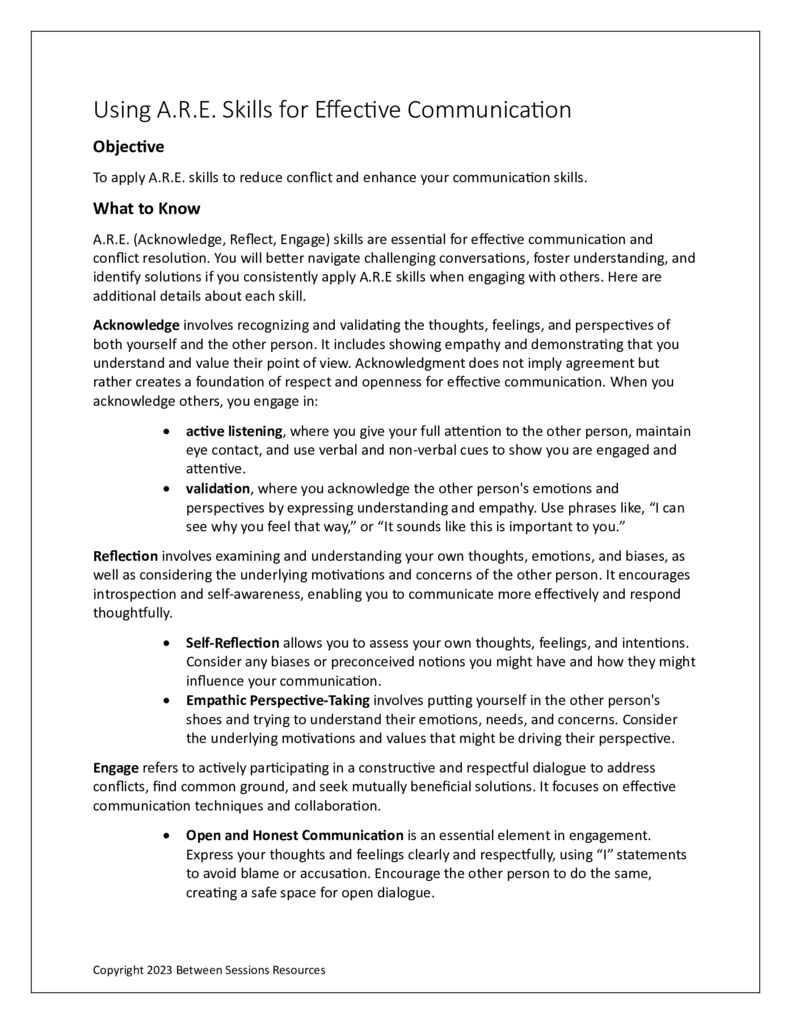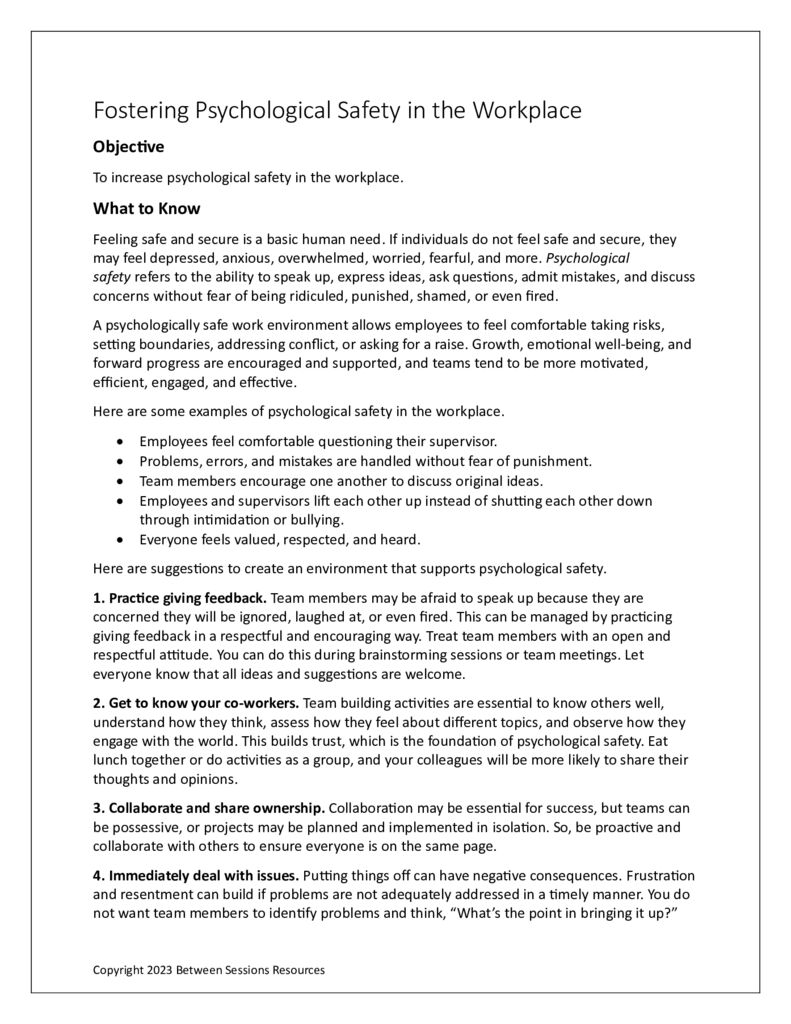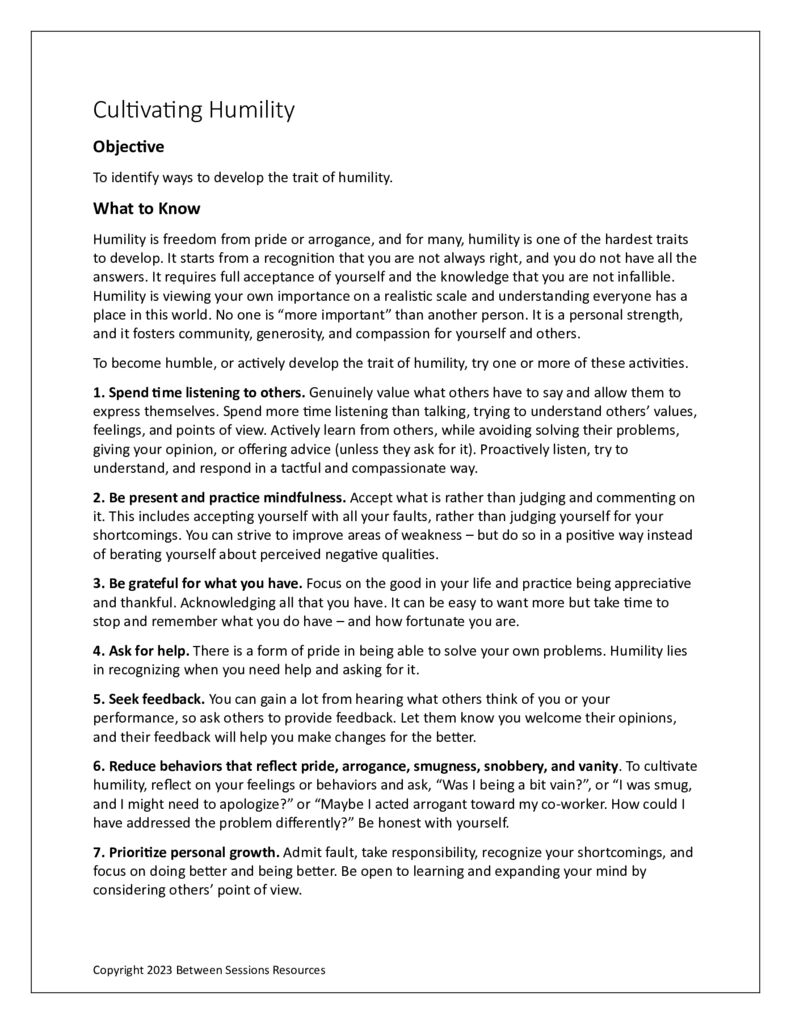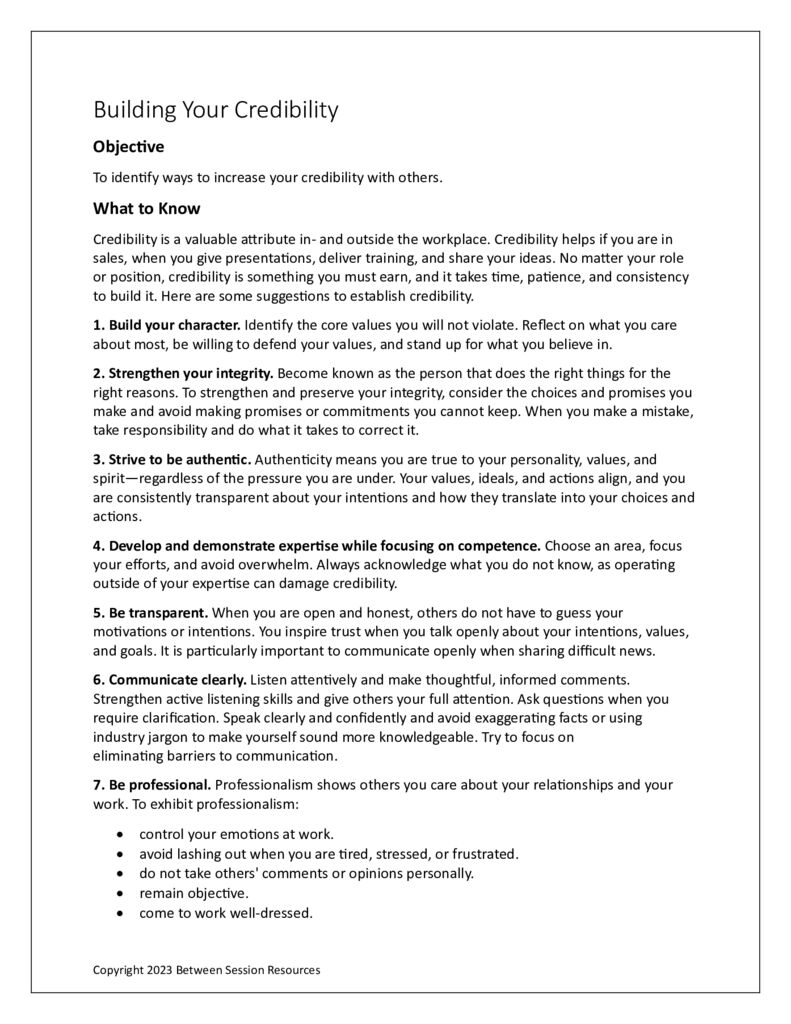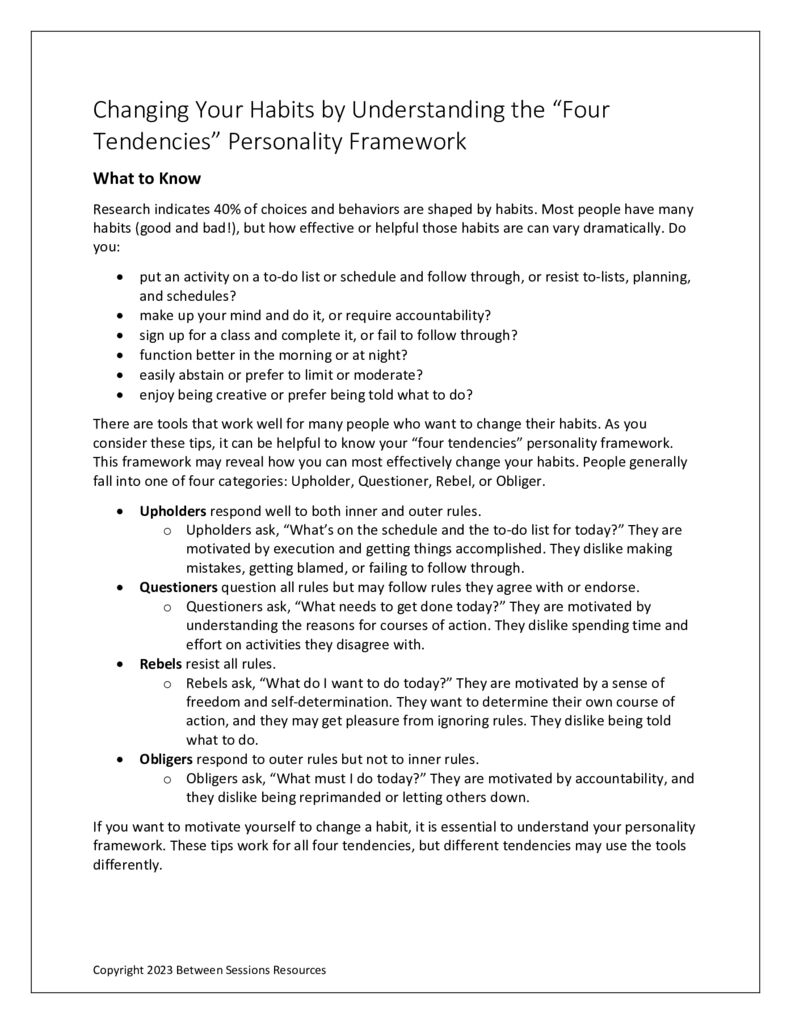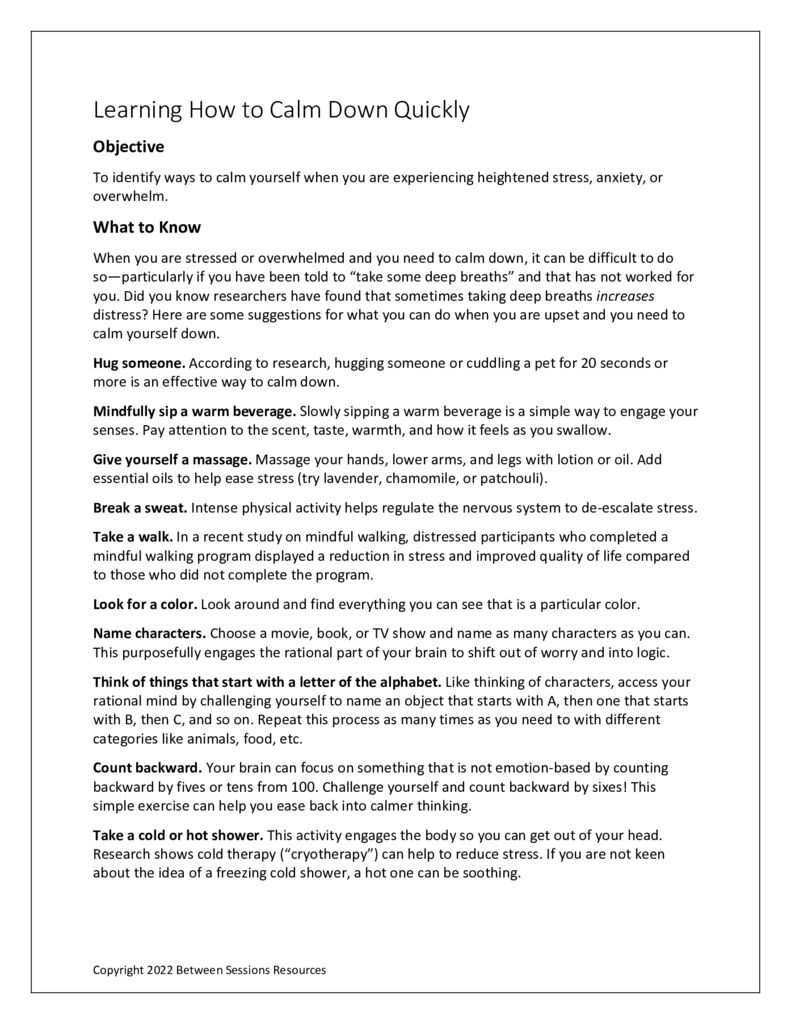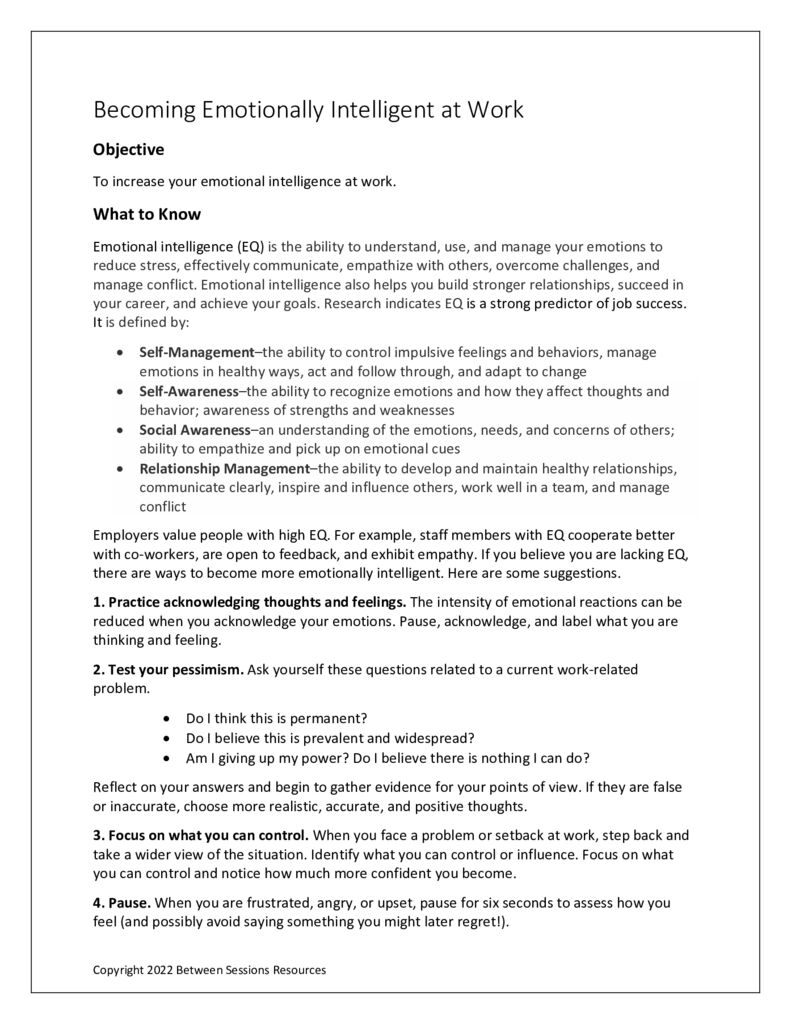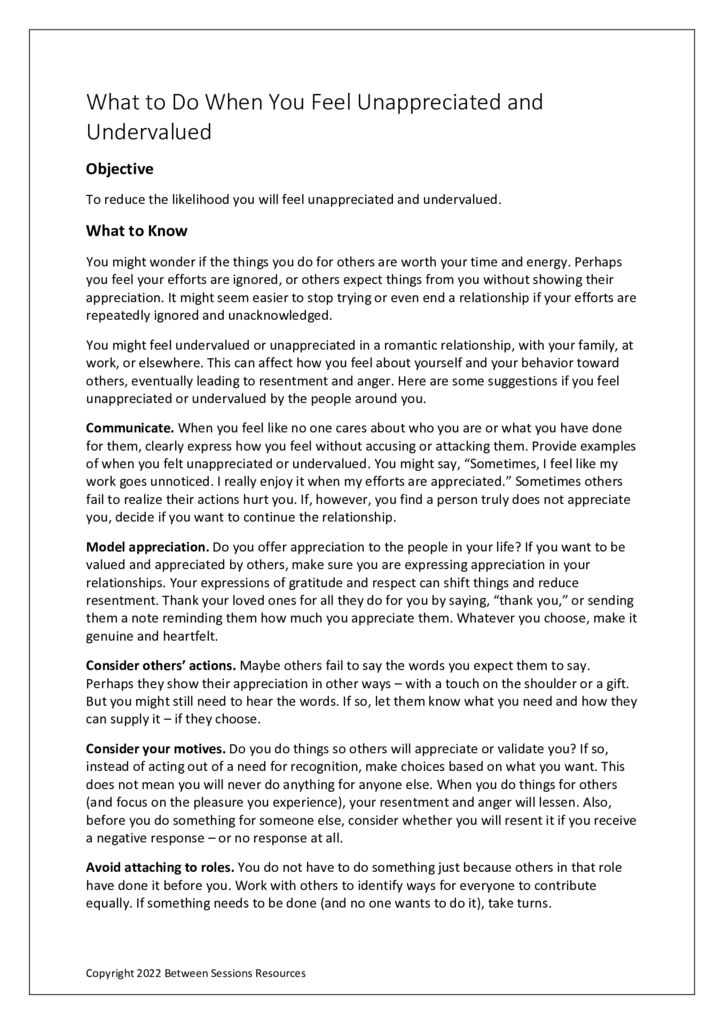This worksheet explores why some people bounce back from failure while others experience feelings of self-doubt, depression, anger, and disappointment. It suggests 8 ways to overcome the negative feelings that can accompany a failure, including engaging in self-compassion, focusing on the process rather than the results, challenging negative thoughts, and more. The worksheet provides questions to help people explore their feelings of failure and find appropriate strategies to move on. (1023, depression, anxiety, job satisfaction, anxiety)
Grit is a personality trait defined as the passion and perseverance to achieve long-term goals. Grit essentially embodies the concepts of resilience, determination, tenacity, and endurance. This 9-minute audio is designed to help people focus on and foster their grit. (0723, resilience, wellness, success)
A.R.E. (Acknowledge, Reflect, Engage) skills are essential for effective communication and conflict resolution. A.R.E. skills can help people better navigate challenging conversations, foster understanding, and identify solutions to interpersonal problems. This worksheet helps people learn these skills and apply them in personal and business relationships. (0623, communication, relationships, conflict-resolution)
A psychologically safe work environment allows employees to feel comfortable taking risks, setting boundaries, addressing conflict, or asking for a raise. Growth, emotional well-being, and forward progress are encouraged and supported, and teams tend to be more motivated, efficient, engaged, and effective. This worksheet encourages the creation of a psychologically safe workplace through a team-building activity and problem-solving exercise (0523, coaching, workplace issues, career, management, leadership, team building, psychological safety)
This worksheet is designed to help people become more humble to gain social acceptance. It includes seven strategies to help people who have a problem with arrogance and vanity. Questions are designed to help people explore the importance of having a self-image that takes into account reactions of others. (0323. relationships, social skills)
This worksheet is designed to help people build their credibility in the workplace and in the community. It suggests 12 ways to build credibility such as being open to new ideas, being transparent, and communicating clearly. The worksheet includes a chart for people to record their “credibility practices” for a month. (0323, workplace issues, self-esteem, relationships)
This worksheet asks people to think about their personality in one of four categories: upholder, questioner, rebel, or obliger. It then gives 7 techniques to help people can change a habit. Charts are included to help people track and change their habits (0123, habits, problem-solving, impulse control)
This worksheet gives people simple ideas to turn off the “fight or flight” response. A chart is included to help people keep track of which techniques are most effective. (0822, anxiety, calming, self-calming)
This worksheet explains the basic principles of emotional intelligence and gives 9 suggestions on how people can improve their EQ at work. Follow up questions help people explore how they can improve their emotional intelligence. (0822, work, employee relationships,
This worksheet is designed to help people who feel that others are not acknowledging their efforts to be helpful on an ongoing basis. It provides a dozen suggestions on what people can do to feel better about themselves and those around them. The worksheet is designed to help people think about why feeling appreciated is important to them and how they can get the appreciation they seek. (0522, social skills, relationships, marriage, parenting)

